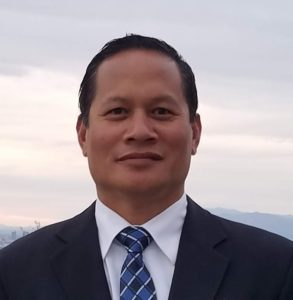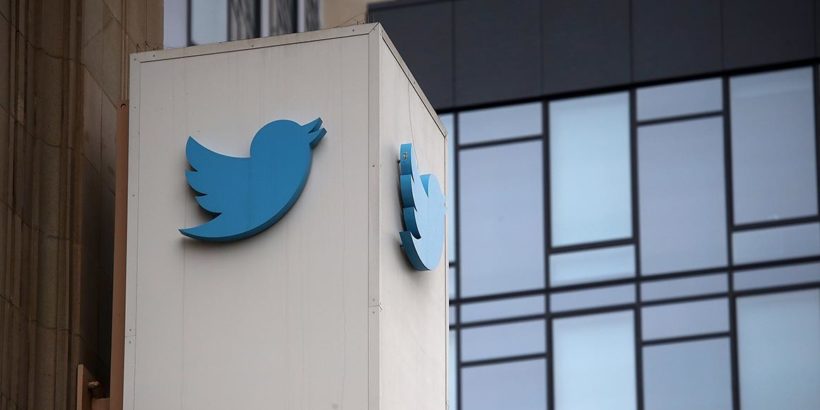August 7, 2019
Social media companies, including Twitter, have denied the allegations of bias, though they say they have blocked or removed users who violate community standards policies.
None of the three would describe the contents of the order, which one person cautioned has already taken many different forms and remains in flux. But its existence, and the deliberations surrounding it, are evidence that the administration is taking a serious look at wielding the federal government’s power against Silicon Valley.
Accusations of anti-conservative bias have become a frequent rallying cry for Trump and his supporters, seizing on incidents in which tech platforms like Facebook, Twitter and Google-owned YouTube have banned people like InfoWars founder and conspiracy theorist Alex Jones or faced accusations of squelching posts by pro-Trump social media personalities Diamond and Silk.
The companies have denied the allegations of bias, though they say they have blocked or removed users who violate community standards policies. They have also faced complaints from liberal activists that they’re too slow to remove hate speech, a category that some say includes Trump’s own tweets.
The issue took center stage during a White House gathering in July in which Trump railed against censorship in front of a roomful of online conservative activists, and directed his administration to explore all “regulatory and legislative solutions to protect free speech and the free-speech rights of all Americans.” Just this week, Trump warned that he is “watching Google very closely,” citing the case of an engineer who has claimed the company fired him for his conservative views.
But the White House effort may be complicated by skepticism in some agencies involved in the discussions about tech policy. The Republicans at the Federal Communications Commission and Federal Trade Commission have said publicly that they don’t see a role for their agencies in policing companies’ online content. The FCC and FTC have joined the Justice and Commerce departments in discussions about the potential bias crackdown.
“There’s very little in terms of direct regulation the federal government can do without congressional action, and frankly I think that’s a positive thing,” said John Morris, who handled internet policy issues at the Commerce Department’s National Telecommunications and Information Administration before leaving in May.
He added: “Although the government may be able to support and assist online platforms’ efforts to reduce hate and violence online, the government should not try to impose speech regulations on private platforms. As politicians from both sides of the political spectrum have historically urged, the government should not be in the business of regulating speech.”
One potential approach could involve using the government’s leverage over federal contractors, a tactic the Obama administration used to advance LGBT rights. A 2014 executive order prohibited federal contractors from discriminating against workers on the basis of sexual orientation or gender identity.
Trump earlier this year signed an executive order meant to promote free speech on college campuses by requiring schools to agree to promote free inquiry in order to receive federal research funding — something the schools were already supposed to do.
Concerns about harmful content online following last weekend’s mass shooting in El Paso, Texas, could become part of the discussion around the draft order on tech bias. The suspected gunman has been linked to a racist manifesto that, shortly before the shooting, appeared on 8chan, a fringe website known as a hotbed of white supremacy. Online screeds tied to two other gunmen in mass shootings in California and New Zealand have also appeared on 8chan.
“If the internet is going to be presented as this egalitarian platform and most of Twitter is liberal cesspools of venom, then at least the president wants some fairness in the system,” the White House official said. “But look, we also think that social media plays a vital role. They have a vital role and an increasing responsibility to the culture that has helped make them so profitable and so prominent.”
Two other people knowledgeable about the discussions also confirmed the existence of the draft order.
None of the three people could say what penalties, if any, the order would envision for companies deemed to be censoring political viewpoints. The order, which deals with other topics besides tech bias, is still in the early drafting stages and is not expected to be issued imminently.
“The President announced at this month’s social media summit that we were going to address this and the administration is exploring all policy solutions,” a second White House official said Wednesday when asked about the draft order.
Trump said Monday that he wants the government to work with social media “to develop tools that can detect mass shooters before they strike,” and the White House has invited internet and technology companies for a discussion on violent online extremism with senior administration officials Friday.
The first White House official said the administration sees no conflict between demanding that online companies allow free speech while expecting them to scrutinize people for signs of violence.
“They have a role, if not a responsibility, to monitor the content on their sites to ensure that people aren’t threatened with violence or worse, and at the same time to provide a platform that protects and cherishes freedom and free speech, but at the same time does not allow it to descend into a platform for hate,” the first White House official said when asked about the draft executive order.
But the federal government’s options on combating online bias are limited by the First Amendment. Another obstacle is a provision of the 1996 Communications Decency Act, which both protects online platforms from liability for content their users post and empowers the companies to remove content without fear of liability. That provision, Section 230, has increasingly come under fire from lawmakers of both parties frustrated with tech companies’ content moderation practices.
The administration could look to NTIA, the branch of the Commerce Department that handles communications policy, but that agency lacks regulatory authority and could simply convene interested parties to explore the issues.
And while the Justice Department has announced a sweeping antitrust review of whether tech giants are harming competition or stifling innovation, antitrust cases have not traditionally been used as tools to address complaints about online speech.
The prospects are also bleak at the independent agencies, the FCC and the FTC.
Section 230 doesn’t give the FCC a regulatory hook to act on, and the Republican commissioners who lead the agency have already taken a hard line against one major government effort to regulate broadband providers’ conduct — the commission’s Obama-era net neutrality rules. And when Facebook CEO Mark Zuckerberg wrote an op-ed proposing the creation of “third-party bodies to set standards governing the distribution of harmful content,” Republican FCC Commissioner Brendan Carr derided it as a plea for the government to police speech.
“Outsourcing censorship to the government is not just a bad idea, it would violate the First Amendment,” tweeted Carr, who is a Trump appointee. “I’m a no.”
Conservatives have also spent decades opposing any attempt to revive the FCC’s old Fairness Doctrine, which required broadcasters to be balanced in their programming on controversial issues. “FCC bureaucrats can neither determine what is ‘fair’ nor enforce it,” the Heritage Foundation said in 1993.
Republicans at the FTC, which punishes companies for unfair or deceptive acts, also have said they don’t see a role for the agency in policing allegations of social media bias.
During an FTC oversight hearing in the Senate last year, Sen. Ted Cruz (R-Texas) argued that a tech company could be considered “actively deceptive” if it appears to be a neutral public platform and then engages in censorship. But Republican Commissioner Noah Phillips said the FTC’s antitrust and consumer protection authorities are “not authorities to police the First Amendment itself.”
By MARGARET HARDING MCGILL and DANIEL LIPPMAN

Leonard Bacani is a retired Santa Ana Police Officer and the Founder of HOMELAND SECURITY SERVICES, INC. headquartered in Southern California.HOMELAND SECURITY SERVICES, INC. is a Private Investigation, Private Security firm and State Authorized Training Facility. Contact Leonard at LBacani@hssinc.us for assistance or call the office: (714) 865-1135. Website: http://www.homelandsecurityservices.com

